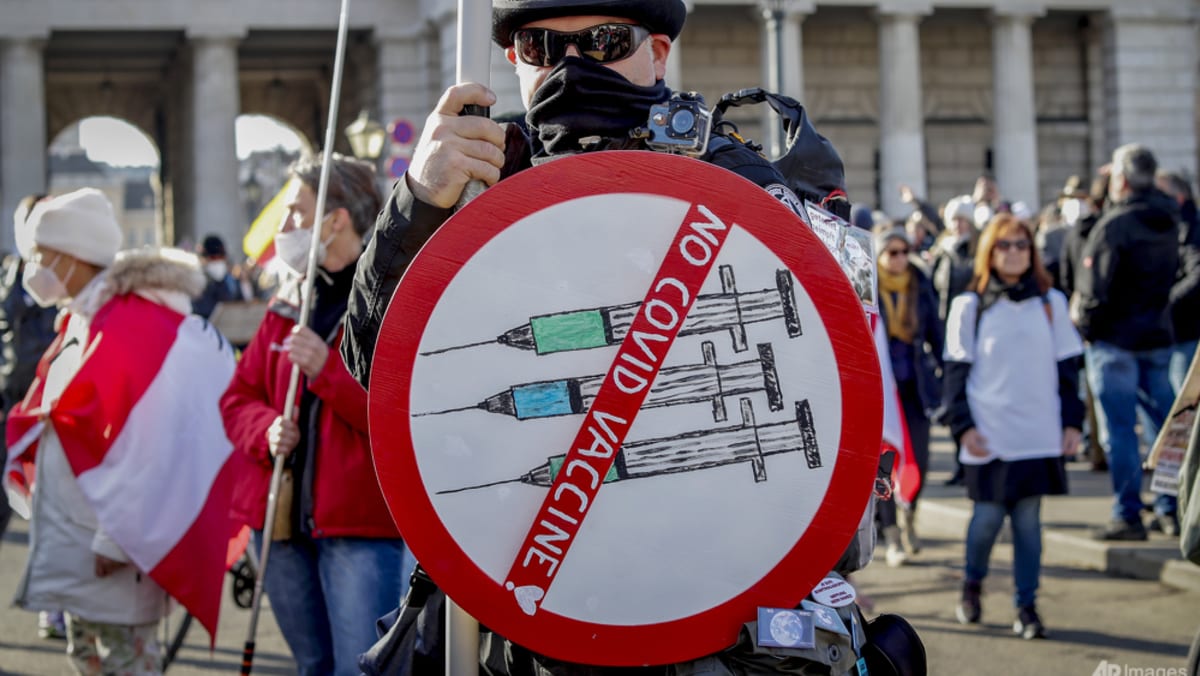Commentary: Austrian lockdown for unvaccinated comes close to mandatory COVID-19 vaccination
HUMAN RIGHTS AND THE PANDEMIC
The court’s reluctance to interfere can be seen in some of the early human rights cases of the pandemic.
Earlier this year, it found a challenge against Romania’s lockdown laws to be “inadmissible” because the Romanian applicant who brought the case failed to show that lockdowns were particularly injurious to him.
Lockdowns were, according to the court, very clearly a “restriction”, not a deprivation of liberty and so did not violate the convention’s right to liberty under Article 5 of the European Convention on Human Rights.
This is not to say that other convention rights may not also be affected by lockdowns. The right to private family life, or the right to freedom of association may be affected. But again it is likely that a wide margin of appreciation will be afforded to states.
It is understandable that courts may not wish to tie the government’s hands behind its back when responding to a crisis such as the pandemic.
Lockdowns are a vital response to the pandemic and can even be justified on human rights grounds as protecting people’s right to life.
But we may nevertheless be uneasy about courts’ hands-off approach and the legal manner in which lockdowns have been enacted.
In my book Emergency Powers in a Time of Pandemic, I argue that states should have formally declared emergencies in accordance with Article 15 of the European Convention on Human Rights so as to “quarantine exceptional powers to exceptional situations”.
This way, any “hands-off” court ruling allowing these exceptional powers cannot be used to justify similar interference of human rights outside the pandemic.
For example, ensuring that states do not introduce similar lockdown powers to deal with less obvious threats such as terrorism when there does not exist a “public emergency threatening the life of the nation”.
Whether other states follow Austria’s lead on selective lockdowns is likely to depend on how successful it is in increasing vaccination rates and stopping cases.
But the long-term human rights legacy of these powers will not be clear until long after the pandemic has waned.
Alan Greene is a Reader in Constitutional Law and Human Rights at the University of Birmingham. This commentary first appeared on The Commentary.
For all the latest world News Click Here

